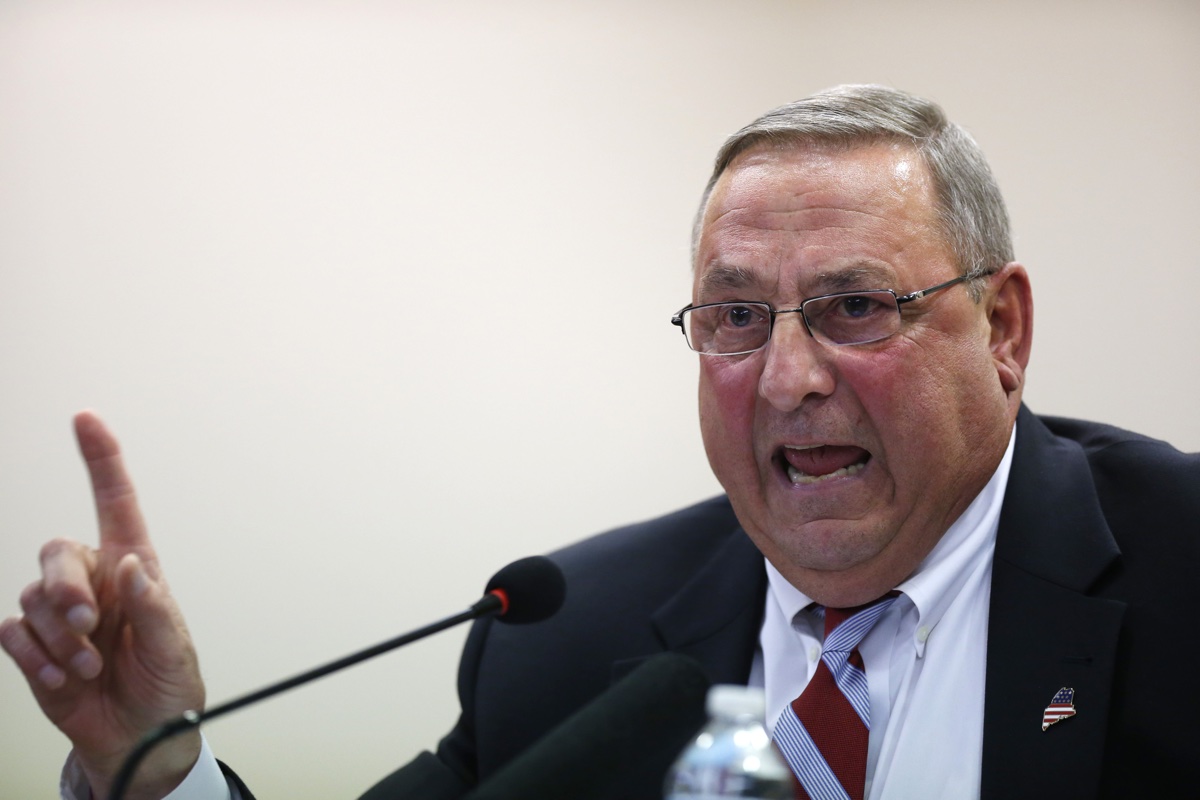Surprise! Paul LePage Has Some Thoughts About Jim Crow

Photo via AP
Just when he was about to slip from your mind, Maine Gov. Paul LePage is back, and he’s here to share some thoughts on race!
LePage, who endorsed President-Elect Donald Trump back in the Republican primary, took issue with Rep. John Lewis’s decision to boycott the inauguration, as well as Rep. Chellie Pingree, a Maine Democrat who’s decided to join him.
“If she won’t attend on Friday, I would advise her to resign,” LePage said on WVOM. “To me that’s political rhetoric. Donald Trump is blunt, he comes out and says it the way it is and that’s why he got elected. Chellie Pingree, Angus King…we’re sick of these silver-tongued people.”
Lewis, a civil rights icon who marched with Dr. Martin King Jr., said he does not “see this president-elect as a legitimate president,” prompting Trump to fire back on Twitter, calling the Georgia congressman “all talk,” and his district, which includes the most affluent part of Atlanta, “falling apart.”
“John Lewis ought to look at history,” LePage graciously explained. “It was Abraham Lincoln that freed the slaves. It was Rutherford B. Hayes and Ulysses S. Grant that fought against Jim Crow laws. A simple thank you would suffice.”
As the Bangor Daily News‘ State and Capitol blog astutely observed, LePage’s interpretation of history fails to account for about 100 years of events, give or take. Jim Crow laws, which codified racial segregation in the South, began under Hayes, who agreed to withdraw Union troops from the south as part of the Compromise of 1877, which landed him in the White House following a contested election.
Of course, Jim Crow laws remained on the books long after Grant passed Civil Rights Act of 1875, which the Southern states largely ignored. They persisted in places like Alabama, where state troopers savagely beat Lewis as he marched for voting rights in 1965.
“We’ve had to endure your president for eight years,” LePage said. “We survived.”
To whom this “simple thank you” should be addressed remains to be seen.


